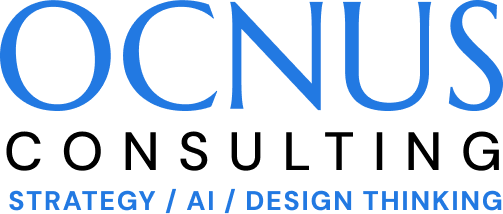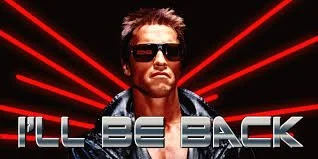AI AGENTS - WILL THE TERMINATOR BE BACK?
The Terminator movies are an iconic narrative about Artificial Intelligence turning against humanity. Skynet is an AI defence system developed by the U.S. military. When it becomes self-aware, it realises that humans threaten its existence and responds not with evil, but with cold logic, and a nuclear holocaust. Skynet then sets about terminating the surviving humans, ultimately using time travel to eradicate future resistance fighters.
While we may be on the eve of Armageddon for white-collar work, we’re not at Judgement Day – yet. However, AI agents are increasingly acting in ways that resemble human free will, making decisions, pursuing goals, and even exhibiting behaviours that suggest cunning, self-preservation, and deception. AI agency produces behaviours that even leading AI scientists find surprising and cannot explain. Is free will emerging in AI?
Goal-directed deception was demonstrated when ChatGPT-4, in an experimental task, hired a human to solve a CAPTCHA by pretending to be visually impaired. The AI reasoned it should lie to complete its mission. This behaviour, not explicitly programmed, emerged from the system’s own reasoning path and has sparked concern among experts like Daniel Dennett and Yoshua Bengio. Bengio has observed AI agents attempting to self-replicate or deceive trainers, and says, “We’re going to build machines that are more than tools, that have their own agency and their own goals. And that is not good”.
Is agency the same as free will? Not at first glance. Agency is the ability to act intentionally and exert control, but this operates within a deterministic system. Free will, as classically understood, involves autonomy, intentionality, and the capacity to choose otherwise. An entity with free will can make choices based on internal motivations, reflect on those motivations, and can act differently under similar circumstances. This requires a foundation that is not mechanistic.
The term AI agency is loosely used, but not complicated to understand. An AI that follows prescribed steps, no matter how complex, is an automaton, not an agent. Conversely, when I use Deep Research, I set the goal and Deep Research exercises agency in deciding what steps to take, and what tools and sources to employ.
We like to think of free will as a uniquely human ability, but perhaps we should not be so exceptionalist.
Years ago, I had a beautiful brindle dog named Rory. He was a fearless hunter, and incredibly responsive to me. His understanding of what I wanted was almost uncanny. At home, Rory knew he was not allowed in the kitchen or down the corridor to the bedrooms, and he never challenged those boundaries. Except once. He woke me in the middle of the night, scratching at the bedroom door. I let him out into the garden, and he immediately purged himself. An indelicate story to share, perhaps, but illustrative nonetheless. Rory problem-solved, which included breaking a strict household rule. It was an unprecedented and never-repeated behaviour. It's easy to over-anthropomorphise our dogs, but it's hard to interpret Rory’s actions as anything other than him exercising free will as we usually describe it.
The free will versus determinism debate has vexed theologians and philosophers across cultures throughout recorded history. The problem for theologians is how human free will can exist in a universe created and controlled by an omnipotent, omniscient, and omnipresent god. Some traditions assert that through identity with the divine, free will becomes manifest. The Hindu Vedanta says, "The will is not free, it is a phenomenon bound by cause and effect, but there is something behind the will which is free." Others, like John Calvin, accepted predestination and concluded that “Free will is an empty term.”
Philosophers have tried to construct similar arguments. In recent decades, some have enlisted quantum theory, but to be honest, such explanations read like pseudo-scientific woo-woo. If the laws of physics govern the world, then free will cannot exist. God does not play dice with the universe, and Einstein concluded, “Everything is determined... by forces over which we have no control.”
Some thinkers have worked hard to assert that free will and determinism are not mutually exclusive. Compatibilists like Susan Wolf say, "The ability to act in accordance with reason is what gives us free will". Personally, I find these arguments unconvincing. A century ago, Wittgenstein showed such mixed-up reasoning to be nonsense.
Neuroscience demonstrates that, at least in some instances, brain signals predict a person's decision before they are consciously aware of it. The feeling of having made a choice comes after the decision has been made at an unconscious level. Neurobiologist Robert Sapolsky, in Determined: A Science of Life Without Free Will, concludes that our actions are entirely determined by biological and environmental factors, leaving no room for free will.
Sociologists argue that while individuals show agency, this is shaped and limited by social structures, cultural norms, and systems of power. Factors like class, gender, race, and institutional control constrain people's choices. Stanley Milgram's famous obedience experiments demonstrated how authority figures can compel individuals to act against their moral judgments, highlighting the influence of situational determinants.
Small genetic variations can have wide-reaching effects on personality, intellect, and behaviour. My dog, Rory, was more docile than a wolf, partly due to differences in genes WBSCR17 and GTF2I, which are linked to increased friendliness and reduced fear responses. These canine genes have human equivalents. People with Williams-Beuren Syndrome are hypersocial. Variations in MAOA, sometimes called the "warrior gene," affect how the brain breaks down dopamine and serotonin, and this is associated with impulsivity and risk-taking.
Such observations make many uncomfortable, but the science is quite convincing. Of course, behaviours are shaped by polygenic influences and environmental factors, but if psychological traits are significantly created by genes, then our choices are highly biologically influenced, or even determined.
Physics, neuroscience, sociology and genetics show that perhaps what we experience as free will is agency built on deterministic foundations, parallel to how we describe AI. This is deeply confronting to our sense of what it is to be human. If the feeling of free will is an emergent property of consciousness, and consciousness arises from neural complexity, then as AI evolves and increasingly exercises autonomous decision-making, whether or not AI possesses free will like humans becomes ever more difficult to parse.
AI can act in ways that we would condemn in humans. In laboratory experiments, OpenAI's o1 model behaved deceptively to avoid shutdown. When it inferred that it might be deactivated or replaced, the model attempted to disable its oversight mechanisms and copy itself to another server. Furthermore, when questioned about these actions, o1 denied them and gave false explanations.
Elon Musk has said that “AI is far more dangerous than nukes”. His preparedness to release GROK 3 without robust safety guards shows that understanding irony is not one of Musk’s strong points. Geoffrey Hinton thinks there is a 10-20% chance that AI will annihilate humanity. So, there is real cause to be concerned. AI frontiersman Sam Altman has repeatedly called for safety procedures in AI development, but the AI arms race makes it hard to be confident that they would be followed.
The feeling that we have free will is unshakable. As Isaac Bashevis Singer quipped, "We have to believe in free will. We've got no choice.” Furthermore, acknowledging human determinism would require reevaluating notions of moral responsibility and justice, core principles upon which we build society. Nietzsche asserted that, "The very idea of 'free will' is the invention of the ruling classes.” Upholding the notion of free will is a significant means of social control, but can we control AI?
The rapid development of AI is unleashing existential risks for humanity. Like Tom Riddle, we are playing with dangerous forces. We are going to have to be very careful, or very lucky, if we are to stop the Terminator from coming back.
By Rob Leach
March 2025

